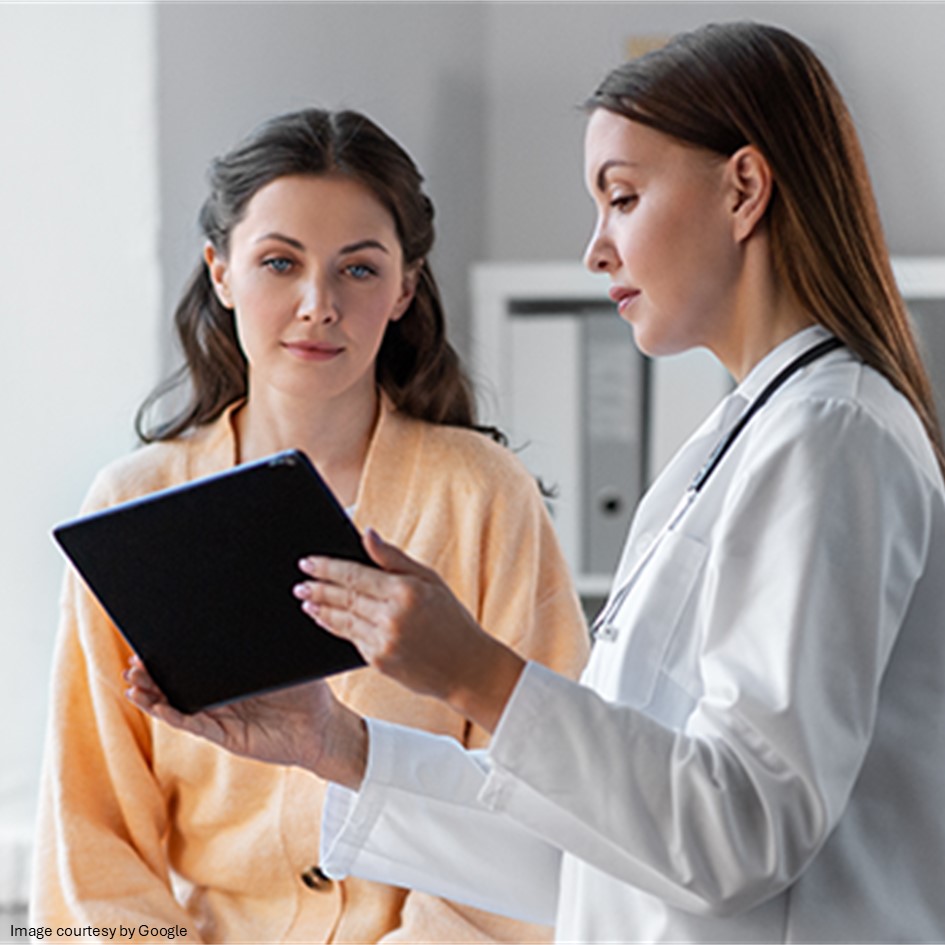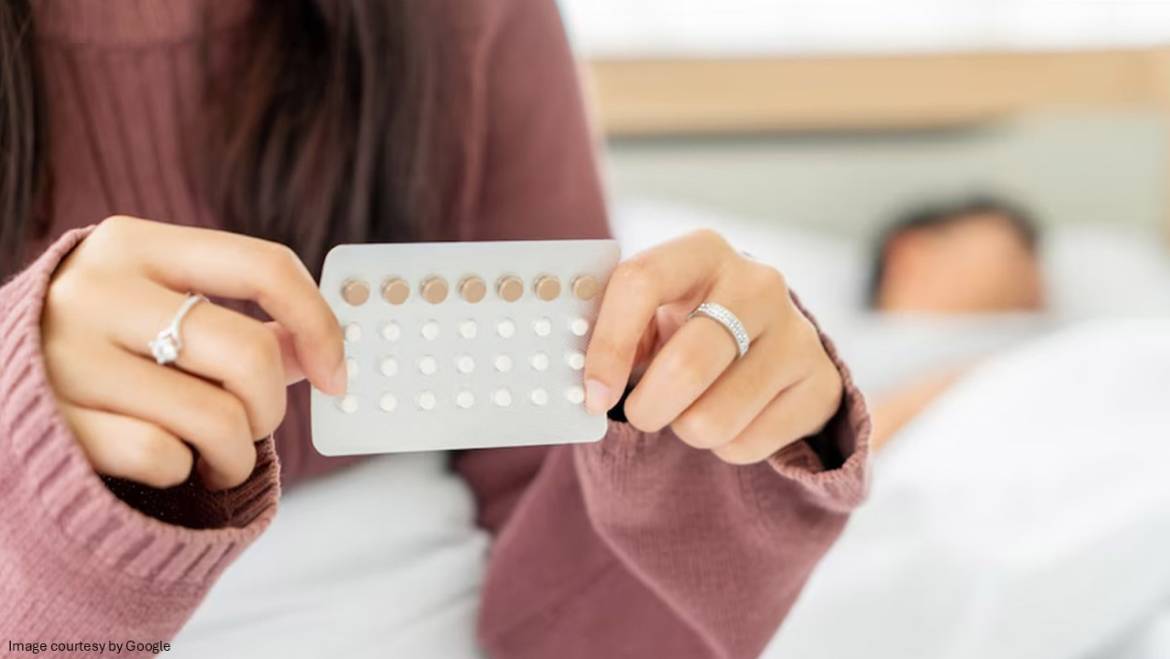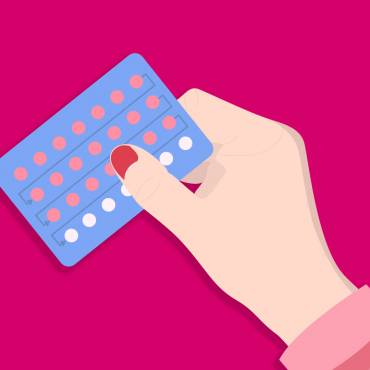Can birth control cause PCOS? A common misconception surrounds birth control. The two terms PCOS and birth control are often used together, as one of the effective and widely used treatments for managing PCOS is birth control. Recommended birth control for PCOS includes a tablet, patch, or an intrauterine hormonal device (IUD), which can effectively manage PCOS. Your healthcare specialist can help you select the best method that suits you while making you aware of PCOS and birth control side effects.
What is PCOS?
Polycystic ovary syndrome is a complex disease affecting about 9 to 13% of females at reproductive age. The condition is characterised by menstrual irregularity, ovulatory dysfunction, presence of excessive androgens (hormones that support growth and reproduction in men and women) and polycystic ovarian morphology.
How can birth control help PCOS?
Well, PCOS can contribute to symptoms such as hormonal imbalance, cramps, acne, bloating, weight gain, pelvic pain, irregular periods, lack of ovulation, and excess hair growth on the face and body. So far, there is no cure for PCOS. However, women affected with this condition can manage some of its symptoms with the use of hormonal birth control under the supervision of the doctor. Hormonal birth control is considered the primary treatment option for managing PCOS. Can birth control give you PCOS? Well, a lot of people have this misconception about PCOS and birth control. The fact is, no, birth control does not cause PCOS, but temporary discontinuation can contribute to certain symptoms that can resemble PCOS or unmask an existing issue.
Understanding how birth control helps in PCOS
The menstrual disturbances seen in PCOS arise because ovulation often doesn’t occur regularly. The ovaries produce excess androgens, and without regular ovulation, progesterone levels remain low while estrogen stays unopposed. Over time, this hormonal imbalance can contribute to a thickened uterine lining (endometrial hyperplasia), which increases the risk of endometrial cancer.
Hormonal birth control works by regulating these hormonal fluctuations. Most forms contain estrogen and progestin, which mimic the body’s natural hormones and help:
-
- Regulation of menstrual cycles – Birth control pills induce regular withdrawal bleeding, giving women predictable, monthly periods.
- Minimising androgen levels – Estrogen increases the production of sex hormone-binding globulin (SHBG) in the liver, which binds to free testosterone in the bloodstream, thereby reducing symptoms like acne and excess hair growth.
- Protect the endometrium – The progestin component prevents the uterine lining from thickening excessively.
- Improve skin and hair symptoms – Many women notice clearer skin and reduced hair growth within months of consistent use.
Types of birth control for PCOS
There are many types of hormonal PCOS birth control measures available, and the best choice often depends on individual health factors, side effects, and personal preferences. Let’s explore the most recommended birth control for PCOS and how it relates to PCOS management.
- Combined oral contraceptive pills (COCs)
These pills contain both estrogen (usually ethinylestradiol) and progestin. They are the first-line hormonal therapy for women with PCOS who are not trying to conceive.
Uses:
-
- Regularised menstrual cycles
- Reduce symptoms like acne and hirsutism
- Reduce the risk of endometrial hyperplasia and ovarian cyst formation
- Often improves premenstrual symptoms and menstrual cramps
Common progestins used include drospirenone, norgestimate, and desogestrel, which have low androgenic activity, making them more favourable for women with PCOS.
PCOS and birth control side effects: The drugs may not be suitable for women with certain health risks, such as hypertension, migraines with aura, or a background of blood clots. It can cause some adverse reactions, including nausea, breast pain, or mood changes, especially during the first few months.
- Progestin-Only Pills (Mini Pills)
These pills contain only progestin, without estrogen. They are a good alternative for women who cannot take estrogen-containing contraceptives due to medical contraindications.
Uses:
-
- Provide endometrial protection
- It is considered safe for women who are breastfeeding or at risk for estrogen-related side effects.
Limitations:
-
- Do not consistently suppress ovarian androgen production.
- It may not provide the same benefits for acne and hirsutism as combined pills.
- Require strict adherence to daily timing for effectiveness.

- Hormonal Intrauterine Devices (IUDs)
The levonorgestrel-releasing IUD (brands like Mirena, Kyleena, or Liletta) releases a small amount of progestin directly into the uterus.
Uses:
-
- Extremely useful in preventing pregnancy (over 99% effective).
- Provides strong endometrial protection by thinning the uterine lining.
- It can reduce or eliminate menstrual bleeding.
Precautions for using the IUDs:
-
- Does not address systemic androgen excess, so symptoms like acne and hair growth may persist.
- Insertion can cause discomfort, and some users experience irregular spotting in the first few months.
- Birth Control Patch and Vaginal Ring
These are combined hormonal methods that work similarly to birth control pills but offer easier administration.
-
- The patch (like Xulane or Twirla) is applied to the skin weekly.
- The vaginal ring (such as NuvaRing or Annovera) is inserted into the vagina for three weeks at a time.
Uses:
-
- Convenient and easy to use.
- Maintain steady hormone levels.
- Effective in regulating periods and controlling PCOS symptoms.
Precautions:
-
- Like combined pills, they carry similar risks related to estrogen use.
- May cause skin irritation (patch) or vaginal discomfort (ring) in some users.
Non-hormonal options and complementary treatments
For women who cannot or prefer not to use hormonal birth control, other strategies can help manage PCOS symptoms:
-
- Metformin, an insulin-sensitising medication, can improve ovulation and reduce androgen levels
- Lifestyle modifications—such as maintaining a balanced diet, exercising regularly, and managing stress—play a critical role in improving insulin resistance and regulating cycles.
- Topical acne treatments and hair-removal techniques (such as laser therapy) can help with cosmetic symptoms.
- Cyclic progesterone therapy may be used to induce regular bleeding and protect the endometrium for women not using estrogen.
Long-term outlook
PCOS and birth control are interconnected? While birth control can effectively manage PCOS symptoms, it’s not a perfect cure. When discontinued, menstrual irregularities and hormonal imbalances may return. However, by stabilising hormones, reducing androgen levels, and protecting reproductive health, Birth control plays a key role in long-term management and quality of life for many women with PCOS. Furthermore, maintaining a healthy lifestyle—focusing on nutrition, physical activity, and stress reduction—remains foundational to any PCOS treatment plan. Combined with appropriate medical care, PCOS birth control can be a powerful tool to help women regain control over their bodies, cycles, and confidence.



